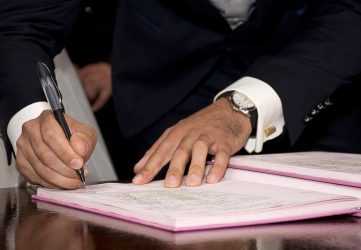By Kim Larsen of Larsenlaw Group posted on Monday, February 3, 2020.
Remember that your lawyer knows your side of the transaction but is blind to the purchaser’s side. Your lawyer will be unaware of how the purchase will be arranging the closing funds, or if there are any issues which might impede the flow of funds needed for closing. These can cause delays:
- Your buyer might be selling his or her own property scheduled to close on the same day as his or her own purchase from you. If there is any delay on that transaction, your purchaser will be needing an extension from you
- Your purchase may be having problems satisfying the conditions imposed by his or her mortgage lender, such as problems regarding evidence of employment income; appraisal issues; source of down payment
Your lawyer communicates with the lawyer for the purchaser but does not communicate with the purchaser directly. However, your realtor would have communication with the agent for the purchase (and if the brokerage acts on the other end of the transaction, there will be more direct communication with the purchaser). The importance of the role of your agent will be apparent from what you are about to read
When the purchaser needs to delay the closing, there is usually not very much warning. Some lawyers who represent purchasers have extended maximum courtesy to our office and present the request two or three days ahead of time. However, most of the time, the request for extension will not arise until sometime on the day of closing. What are your choices then if this occurs?
There are two situations which can occur, each of which has to be dealt with differently:
- The buyer’s lawyer has all the closing funds and provides them to us as the lawyer for the purchase, but that’s too late in the day for electronic registration, which closes at 5pm. Here, we do not penalize the purchaser. The title remains with the seller and the closing funds are held by the firm in trust. The buyer gets the keys and can move in. The electronic registration occurs on the next business day. We can then release funds. This is commonly known as an escrow closing.
Note: don’t let your insurance coverage end on the closing day. Let it run for a couple of days past closing as the daily premiums are not costly and you have coverage for your insurable interest during the escrow period - The buyer’s lawyer will ask for an extension of a few days at which point we will have a few decisions to make. We would have tried our best to determine potential scenarios with our vendor clients at the time when we first meet to sign the closing documents.
Although this sounds theoretical, the logic runs as follows: during a signing session, we will work with the selling clients to discuss potential issues and potential ways to resolve. This provides us immediate instructions on the closing day if needed.
Where such a situation really does occur, we have several conditions attached to granting a request for any extension of the closing date. Again, the seller has to have insurance coverage on the home for the period of the extension, and this is best dealt with beforehand.
Some of the conditions of extension of the closing date which we demand are that the adjustments remain frozen as the original closing date, and that the purchaser pays all daily interest from the original closing date to the extended closing date on any mortgage, line of credit or bridge loan that our client is exposed to. Furthermore, the information available to your real estate agent can become very valuable at this stage: the agent can make enquires to see if the problems facing your purchase can be routinely dealt with in a matter of a few days. Our demands are generally agreed to by the purchaser’s lawyer, since there is a lot at stake for the purchase if he or she defaults.
With the new closing date set, and with the extension conditions in place, the transaction closes with a minimum of financial disruption for the vendor.







